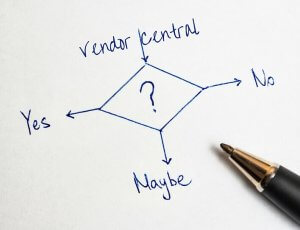 The buzzword for Amazon sellers in 2016 is Vendor Central. If you’re an Amazon Seller Central user, but also an official distributor, a manufacturer, or selling private label, your Amazon buyer may have been dropping hints recently about becoming a Vendor. As eager as you may be to tap into Amazon Business clientele, there are a few things you should keep in mind.
The buzzword for Amazon sellers in 2016 is Vendor Central. If you’re an Amazon Seller Central user, but also an official distributor, a manufacturer, or selling private label, your Amazon buyer may have been dropping hints recently about becoming a Vendor. As eager as you may be to tap into Amazon Business clientele, there are a few things you should keep in mind.
To see what a Vendor account has to offer, go on reading.
To Be, or Not to Be a Vendor …
You may have read everything that’s on the Vendor Central web page, and you may have even signed up for it, hoping to turn into a first-party seller overnight. But how much do you know about being an Amazon vendor? Is the promise of greater cash flow from a brand new customer base real, or make-believe? That is the question.
To begin with, being a vendor means you’d have less competition, with so many customers willing to pay a premium price for the reassurance that the Amazon logo can offer, you can see how switching to Vendor CentralVendor Central is an invite-only platfor… More could be a good choice for you.
Then, you wouldn’t need to monitor or change your prices, pay for an automated repricer or risk losing money in price wars. And last but not least, you can expect a considerable volume of sales for your Vendor Central products, assuming Amazon’s done its research on their popularity; with Seller CentralAmazon Seller Central is a portal or a h… More, it’s more of a gamble and you have less certainty on what will sell well or fast.
These are all obvious, but let’s go in depth and compare the positives and the negatives for Seller Central, Vendor Central and Vendor Express.
POSITIVES
Seller Central
- Disbursements can be made within days rather than weeks, which frees up cash for the business and helps you streamline buying and other processes.
- You have control over what you charge for your products, so you can maximize your profit by increasing your price slightly when sales pick up.
- You can leverage Amazon’s fulfilment capabilities, logistics, customer reach and visibility by opting for FBA.
- You have some access to customer data, complete control over your inventory, and you can carry out customer support services.
Vendor Central
- Access to Amazon Pantry, Amazon Marketing Service and Amazon Display AdvertisingAdvertising is a means of communication … More.
- Increased interest in your products from discerning customers, including business customers, with the resources to match their expectations.
- You have better marketing opportunities; you’re allowed to create A+ content (enhanced content page that showcases the product and its story, offers an interactive product tour, a video revealing its features, a comparison matrix, etc.).
- Landing pages can be customized more easily with bullet points and keywords added to the descriptions.
- For an extra fee, customers have access to the Amazon VineA reviewer program available exclusively… More product review network.
- Just as they do for FBA sellers, these orders qualify for Prime Shipping.
Vendor Express
- It charges nothing for handling and storage.
- You can also opt for direct fulfillment (drop-ship).
- You will start receiving bulk orders as soon as an item sells.
| Perks | Seller Central | Vendor Central | Vendor Express |
|---|---|---|---|
| Access | Open to all | By invitation only | Open to all |
| Main Benefit | Higher margins | Good cash flow | Greater turnover |
| Disbursements | 14 days | 60-90 days | 90 days |
| Price Control | Yours | Shared | Amazon’s |
| Sales Margins | Higher | Lower | Lower |
| Inventory Control | Yours | Amazon’s | Shared (Direct Fulfilment) |
| Shipment Control | Yours for MFN, Amazon’s for FBA | Amazon’s | Shared (Dropship if needed) |
| Qualifies for Prime Shipping | Possibly | Always | Always |
| Listing Limit | None as Pro Merchant | None | 85 items |
| Sponsored Product Ads | Yes | No | No |
| Amazon Vine | No | Yes | No |
| Advertising | Yes | AMS, AMG etc. | AMS |
| A+ Content | No | Yes | Yes |
| Sales Manager | You | Amazon Vendor Manager | Amazon |
NEGATIVES
Seller Central
- When there’s a lot of competition, price wars can bring your margins down, not to mention you may be competing against Amazon
- Your investment into FBA shipments and storage may never pay off for some products if they don’t sell.
- Higher overheads and greater resources involved in stock maintenance, shipping, customer support.\
Vendor Central
- It says it works on net-60 terms, but disbursements are random, and paying you in under 30 days entitles them to a discount.
- Amazon chargebacks happen often, and the slightest oversight in shipping requirements will cost you.
- Reaching out to customer support is a bit more complicated as a vendor, so reversing a charge or investigating a chargeback can take much longer than it does for sellers.
- Buyer data is off limits to you, and you’re not allowed to make direct contact with the customer.
- Amazon can re-write your listings and consequently affect sales.
- Updating an image or a piece of text could take up to 48 hours before it goes live, once approved.
- You don’t have much of an input in what Amazon will charge for the products, but odds are their 50% markup won’t be to your liking.
Vendor Express
- To sign up, you can sometimes be required to send free samples of your merchandise, which may not be that easy if your inventory is expensive, fragile and/or very eclectic.
- Amazon buys in volume and pays you less than other retailers, so you can expect to sell more, but not necessarily make more profit.
- Negotiations are inflexible, but our research indicates that they would be willing to buy for up to $1 above what they initially offered you.
- You’d have absolutely no control over the sale or the customer’s experience.
This concludes our list of the positive and negative aspects of selling on Amazon. Keep in mind, though, that your choice over the type of relationship you have with Amazon will ultimately depend on the type of business you’re running, and what you’d like to achieve as a vendor or seller.
If you’re a large distributor or manufacturer with limited time for direct sales, Vendor Central could help sort out logistics for you. If your business is more customer-oriented, and if you have the time and resources to put into it, you’re probably better off as a seller. It all boils down to the type of business, your managerial experience, social skills, the resources you have at your disposal, and everything else that makes your company unique.
Melanie takes an active interest in all things Amazon. She keeps an eye on the latest developments, and keeps Amazon sellers up to speed.


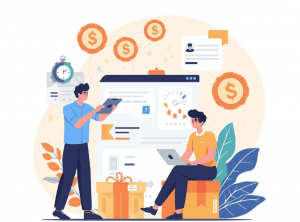
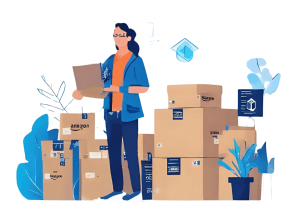
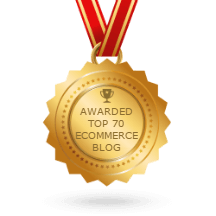
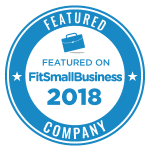
65 Responses
Want to sell note 3
is there any way can get a vendor central account ?
Hi Max,
Registration on Vendor Central requires an invitation from Amazon.
If you don’t have an invitation or an Amazon buyer contact and want to become an Amazon vendor, you may want to start with Amazon Vendor Express. Once you establish a relationship with Amazon you can ask your Amazon buyer to send you an invitation.
I hope it helps,
Maria
SellerEngine Team
Hi Maria,
There is no such thing on Amazon Vendor Express as a buyer contact. Vendor express is fully automated. They don’t even have live phone lines. Some times that is really annoying.
Hi Robbie,
Sorry for not making things clearer. Indeed there’s no buyer contact for Vendor Express. Only Vendor Central users have a buyer contact. What I wanted to point out was that if you don’t have an invitation from Amazon for Vendor Central, you might want to start with Vendor Express.
I’ve been told it’s possible to sale both Vendor Central & FBA, but you didn’t mention it above…is this not the case?
BJ
Hello,
Thanks for your comment. Sorry we didn’t make that clear, but you can indeed sell on both Vendor and Seller Central – there’s no restriction in that sense.
As long as you have a pricing strategy behind that there’s no reason why you couldn’t sell as 1st party and 3rd party.
Cheers!
Maria
SellerEngine Team
Half of the info for Vendor Express is incorrect. Not sure where the editor found it?
Hi John,
Thanks for your comment.
Can you give us more details? Which piece of information is incorrect?
Thank you for your feedback.
Our vendor manager said that she invited us for the Vendor Central so we used the same ID & Password as Vendor Express to log on to Vendor Central. But the ID and Password didn’t work and she doesn’t know why. We tried to reset the password but it didn’t work and showed error message and saying that we have to contact our vendor manager. But she said she invited us to the same email we used for Vendor Express so it should work. Are they both used with same login email for Vendor Express and Vendor Central?
It should be the same login, yes. I’d reach out to your vendor manager about it.
Why would Vendor Express have greater turnover if there’s no enhanced content, special ads, Amazon vine, etc.?…What would cause the greater turnover?
If I can sell through Vendor Central and Seller Central simultaneously, are there rules about pricing not competing with Vendor Central prices?
Can I stop selling through Vendor Express/Central whenever I want and if so, will the Amazon Vine reviews and enhanced A+ content stay or disappear?
Is registration in Amazon US and Amazon UK independent?
“What would cause the greater turnover?”
“If I can sell through Vendor Central and Seller Central simultaneously..”
I’d like to know this too..
Would be great to have more control of our flagship products down the line.
Hi!
As we understand it, items sold via Vendor express sell faster than ones sold through the Vendor program, since Amazon essentially pre-orders from you. The concept behind ‘Vendor Express’ is that the products are sent from manufacturer to customer as quickly as possible. We use the term ‘turnover’ here to mean ‘sales volume’ (as in accounting), not profit. Clearly, orders fulfilled via Vendor Central may be more profitable, because there’s less pressure to fulfil orders quickly. We have tried to clarify this by saying that Amazon ‘pays you less’ under Vendor Express terms, and that you don’t have much leeway for negotiations.
With regards selling simultaneously on Vendor and Seller Central, the main issue for you will not be that you’d be competing against yourself, but that you’d really be competing against Amazon (as buyers perceive Amazon as the seller, not the vendor). We’re not aware of any pricing rules between vendor and seller at this time.
The listing for a product that continues to be sold indefinitely remains on Amazon even if the vendor is no longer active.
Your Vendor Central account is venue based, so you’ll need one user per venue.
I hope it helps!
Maria
SellerEngine Software
Hi Maria,
I understand that Seller’s account can also do FBA. So does it mean the true advantage from Vendor Express is Amazon will do some marketing for the product?
I am developing my own brand and do you think Vendor Express is a good marketing tool (I consider it as marketing tool) to try the market and build brans awareness?
Do I have control over my MSRP or Amazon can adjust it in Vendor Express?
If the purchase price Amazon gives to me is too low, can I reject and not sell?
Thank you very much!
Hi Kevin,
If you sign up for SellerCentral you indeed benefit of the FBA program and don’t have to worry about warehousing, shipping etc. By listing your products on Amazon through SellerCentral you also have access to some basic marketing tools.
By listing though Vendor Express you basically sell your items to Amazon and you as a seller will not be visible on Amazon. There are indeed more marketing tools available for Vendor Express sellers.
As far as I know it’s difficult to keep control over MSRP when selling directly to Amazon, but you can indeed refuse the price offered by Amazon.
Hope it helps.
Hi,
Pls call me urgently this no. xxxxxxxxxx
Thank you for your comment, I’ve approved it but please note we removed your phone number. If you want us to remove your message instead, please write back and we will. We tried calling you today but got the voicemail. If you need another phone call or want to send us some questions, you’re welcome to email us at services@SellerEngine.com. We’d be happy to help.
My experience with Amazon Express started off great. You just print out shipping labels and drop it off at UPS. Things were fine and then about 5 months later I started getting huge amounts of inventory back. Then the next day they would order the same thing and a couple of weeks later it would all come back too.
I’m guessing each warehouse orders a certain amount and if they don’t sell it in a certain time period they ship it back. Then they order again and do the same thing. After going though this a few times I stopped sending them inventory. I sent about 20 emails and no response. No phone number and no way to reach them.
Could be a great program, but very unorganized. Now I don’t even know how to shut it off.
Hi,
I am sorry to hear that you had run into trouble with Amazon Vendor Express.
To close your Amazon Vendor Express account, you can check out the section here: https://www.Amazon.com/gp/help/customer/display.html?nodeId=201380630
Keep in mind that selling through Vendor Express has a couple of particularities, among which the type of items you are selling. Namely, Vendor Express is perfect for popular or fast-selling items, and not unique, niche or off-season products. So you can try to see if maybe the cause of the returned shipments comes from this direction.
Also, another source of information is the Amazon forums where you can get in touch with similar sellers and discuss your situation.
I hope this helps.
Thank you,
Julia,
SellerEngine
Have been using Vendor Express and frustrated to death with their bizarre auto pricing… yes the Marketting options r available but costs eating in to profits that are already lean. The ridiculously higher prices driving sales down and no way to reach anyone to explain or understand!
Hope to switch to vendor central so that can talk to a person as opposed to robots that r doing weird things!
Hi Balaji,
Thank you for reading our blog and for sending in your thoughts.
We do hear sellers who use Vendor Central run into different situations, same as you and get frustrated with especially with the lack of response.
If you wish to start selling on SellerCentral and need help with setting up you Amazon account please let us know and we’ll be happy to help via one of our services.
Happy Holidays,
Julia
SellerEngine Team
Weighing VE with FBA…With Vendor Express do you create your own listing types (QTY, variations, etc) or do you just provide Amazon with the individual product info and they create listings? Also, do you pack products ready for end user order fulfillment or do you ship in case quantities? In Vendor Express does Amazon pay the inbound shipping? Thank you!
Hi Lauren,
Thank you for writing in. With Vendor Express you will send the information to Amazon and it will be Amazon who creates the listings.
You will send the products in case quantities since you will not be selling to the end user but to Amazon. With regards to the inbound shipping it is you who who will have to cover the costs.
I hope this helps.
Thank you,
Julia
SellerEngine
The best thing to do is to take 1 sku and test it with Amazon Express – give it a few months – see how you like it and then go from there. You don’t have to turn over your entire BRAND and SKU’s to Vendor Central or Express.
But Amazon is NOW competing with its sellers more and more and you can’t beat the guys that control the Algorithm. That’s the thing no one is talking about here – the key is making sure you are in the right place where you leverage the power of Amazon’s Marketing muscle and brass door to the algorithm, as they will always favor their Vendor Central – aka “Amazon Retail” over Sellers. Always. What that means is you are essentially competing with Amazon if a competitor is listed with Amazon (retail).
Vendor or Seller – be smart. Amazon is driving out the smaller sellers that built the empire and moving more toward inventory that moves – it’s a total standard retail model of shelf space to sales.
I predict that Amazon will have retail stores (Bricks and Mortar) within the next 2 years – Their AmazonGo is just a testing ground for bigger and bigger stores. They can’t keep growing the way they are without opening up stores. Fuel, delivery, logistics, warehousing, it will kill them their bottom line – that’s why they have video, and music, it has no hard good attached.
Seriously, get in now as a Vendor while you can because if you have ever tried to get into Bed Bath and Beyond and Target as a Vendor – it takes a miracle and MONEY! We are making the transition from Successful Brand Seller to Vendor Express with a few items first – we know the direction that Amazon is headed, and the key is to be Grandfathered into their massive plan to be the world first Trillion Dollar and largest retailer.
Thanks for the great article. Couple questions it raised for me:
I’ve heard podcasters on the subject talk about signing up for Vendor Express just for the marketing benefits (AMS) alone. They seemed to imply that AMS benefits extend to their FBA products, and they would often use their worst performing SKU for VE just to get their foot in the door with the program. Is there any benefit to the FBA sold SKU’s for signing up for VE?
Are there any “no going back” concerns when signing up for VE, or if it doesn’t work out for whatever reason, one can go back completely to FBA?
Can new sellers who are still at low sales velocities with the SKU’s sign up for VE and get any benefit?
Thanks for any further insight and keep the great content coming!
Hi Mark,
Thank you for your comment and for following our blog! We are glad the content we write proves useful.
I think there is a bit of confusion here as it is Vendor Central that offers you the AMS benefits and not the Vendor Express.
So getting back to your question, we have no information that the AMS services provided with the Vendor Central platform have direct impact with your FBA skus on SellerCentral.
The platforms are independent one of each other so it is unlikely for that to happen but you might want to check out with the source of the podcast you have listened.
Since the platforms are different, if Vendor Central does not work out for you, you can always close the account and focus on your SellerCentral business.
With regards to your last question, if you are a new seller at low sales velocities I would say you have a lot of means to accelerate sales via SellerCentral and that the minuses you face with Vendor Central and Vendor Express are outranking the advantages for new sellers. As such it is best to keep your attention focused on one platform and use its advantages (have good listings with proper keywords and descriptions, keep your prices at a competitive level, address and encourage feedback via your support procedures, to name just a few).
I hope this helps!
Thank you,
Julia
SellerEngine Team
If I’m a distributor for Music and DVDs and I want to sell my new exclusive products which one works better for me Seller Central or Vendor Central?
Hi Steve,
It ultimately depends on you (Seller Central involves more implication from your part whereas Vendor Central means selling in bulk directly to Amazon), but Music usually works well on Seller Central. Are your products already on Amazon or do you need to create catalog pages for them?
Maria
SellerEngine
What is the difference between a Vendor Central and Vendor Express?
Vendor Central is an invite-only platform for best brand owners. Through this platform brand owners can sell directly to Amazon and also have access to Amazon’s Marketing Services. Vendor Express is a sort of intermediary between Vendor Express and Sellers Central in the sense that it offers some of the features of Vendor Central but allows brand owners to register without an invitation.
Maria
SellerEngine
What is an AMAZON / AR (CDF) account and AMAZON.COM / BULK?
Steve,
I think we need more details here. Are you referring to Amazon’s developer account? Not sure what you mean with Amazon.com/bulk.
Maria
SellerEngine
These accounts are very confusing but I have the Amazon Advantage account for my back catalog masters that I own.
I have an Amazon Sellers Central account which I’m trying to intergrate with my warehouse but they are asking me if I have the Merchant Pro Level Account. Is the Seller Central the same as the Merchant Pro Account?
Also, I applied for the Vendor Central account but was given the Vendor Express account. I was told you have to be invited to be accepted to be a part of the Vendor Central account. How can I apply for the Vendor Central account?
Hello Steve,
Seller Central has two options: Individual account and Professional account (Pro Merchant Account). You probably need to upgrade to the Pro Merchant account. More details here: https://services.Amazon.com/selling/benefits.htm/ref=asus_soa_hnav
Vendor Central is an invite-only platform. You can’t sign up for Vendor Central, unfortunately. Vendor Express allows sellers to transition to vendor accounts, selling their products to Amazon, rather than directly to consumers, without the need of an invitation.
Hello,
Our brand is being sold by Amazon (through either Vendor Express/Vendor Central). It is clearly not us. Is there any way to discover which one of our distributors is selling the product to Amazon through VE or VC? … What documentation does VE/VC require from a distributor to prove they are authorized to sell an item?
Thank you!
Hello Anna,
Unfortunately there’s no way to find out who is Amazon’s source but you can open a case with them and ask for details. You can provide them with the documentation that proves you’re the brand owner and request for details about the distributor that sells your products to Amazon.
I hope it helps.
Maria
SellerEngine Team
Hi Maria,
Can you tell me what is Amazon- CDF, Amazon.com/ Bulk and Amazon LLC?
Hi Steve,
Thank you for following our blog.
The Amazon CDF is the abbreviation from Catalog Data Format. It is a file format created to integrate data such as title, release year of media content into the Fire TV. Ypu can check out the following link for more details https://developer.Amazon.com/public/solutions/devices/fire-tv/docs/catalog/about-the-cdf.
I am not sure what your question is with regards to Amazon.com/Bulk. If you could please expand on that we’d be happy to help.
With regards to Amazons LLC, this is a legal entity and it stands for Legal Liability Company. It is a common practice for large companies to have multiple legal entities.
I hope this helps.
Thank you,
Julia
SellerEngine Team
is Amazon.com/Bulk Sellers Central or Amazon Advantage or is it another program that Amazon offers?
Hi Steve,
Amazon Seller Central is different from Amazon Advantage. Amazon Advantage is a separate program on Amazon dedicated to “publishers, music labels, studios, authors, and other content owners who would like to source their products to Amazon.com, the world’s leading on-line retailer.” You can read more about the Advantage program here.
I hope this helps,
Julia
SellerEngine Team
I’m currently selling to Amazon Advantage and Amazon Seller Central and I would like to get invited to sell in Vendor Central since I’m a music and dvd distributor. How can I apply and receive a Vendor Central account?
Enable Business Seller features and gain targeted access to Amazon Business buyers.
Is this a account better for a distributor selling music and dvds?
Thank you for your inquiry, Steve. The Vendor Central account is invitation based only, so Amazon would have to invite you themselves. You can, however, open a Vendor Central Express account: https://vendorexpress.Amazon.com/help/topic/201531290, which is similar. You can start with a few items only and see how they go to decide if this option suits you. And you can definitely keep your Seller Central Account active while doing it too. Hope this helps.
Hello,
We are dealing in medical scrubs and uniforms,, we sell our own brands like Lakhani,Option,Actual,24/7 and also deal in international brands like “Dickies, cherokee, heartsoul, and many more”,,,
we have to start our business with Amazon Express.
so anyone can help us that we will join Amazon express or not..?
Hi,
Thank you for writing in and following our blog.
I am sending you below a link with all the details you need to know about Vendor Express as well as with the guidelines to creating a Vendor Express account.
Info can be found here.
I hope this helps.
Thank you,
Julia,
SellerEngine Team
What account sells Amazon Prime Videos?
Is it Advantage or Seller Central?
Thank you.
Vendor Express is not for CDs and DVDs.
How does one get a Amazon Prime account and what is Amazon Prime?
Hi Steve,
Thank you for writing in and for following our blog.
You can read more about what is Amazon Prime in our article, here.
With regards to how you can qualify for Amazon Prime:
– one option is to fulfill your inventory as FBA. You can read all about it and the benefits including becoming a Prime Seller here.
– the other option, if you do not wish to trun to FBA and you fulfill your items as MFN, you will need to meet some eligibility criteria, such as: having a pro merchant account, being enrolled with Premium Shipping, good metrics and performance.
In order to enroll and become an Amazon Prime Seller you will need to contact Amazon and let them know about this.
Please let me know if this is clear and if you have any other questions and I will be happy to help.
Thank you,
Julia
SellerEngine Team
@olteanuJulia
How to get sellercentral credentials using any api.
I am currently unaware of how a seller central account works for Amazon with the product it sells. Currently from what I understand, vendor express accounts sell product to Amazon, but does Amazon then sell this product to seller central accounts? Can a seller central account sell items that they already own but simply pay the margin to Amazon?
Hello, Kiran!
Thank you for writing in and for following our blog.
If you sign up for SellerCentral you benefit of the FBA program and don’t have to worry about warehousing, shipping etc. By listing your products on Amazon through SellerCentral you also have access to some basic marketing tools.
By listing through Vendor Express you basically sell your items to Amazon and you as a seller will not be visible on Amazon. There are indeed more marketing tools available for Vendor Express sellers.
Items sold via Vendor express sell faster than ones sold through the Vendor program since Amazon essentially pre-orders from you. The concept behind ‘Vendor Express’ is that the products are sent from manufacturer to customer as quickly as possible.
Clearly, orders fulfilled via Vendor Central may be more profitable, because there’s less pressure to fulfill orders quickly.
Hope it helps.
Roxana
SellerEngine Services Team
We have a vendor central account whereby we receive PO’s from Amazon once a week, we fulfill the PO’s within 2 days and have the shipments picked up to go to their respective warehouses. We have been encouraged to also open a seller central account where we would have more control over the images, content, pricing and buyer reviews. Does it make sense to run these two platforms simultaneously or to choose only 1 platform? If we chose seller central over vendor central, would our sales be better (given enough time) or is there more advantage to vendor central because of Amazon’s advertising allowances? We get charged advertising costs right now. Or, does Amazon also charge for advertising on the seller central platform? In seller central, we would deal with returns, complaints with the customer directly, correct? As vendor central, we don’t have returns but we pay to not have returns. Any feedback would be appreciated.
Hello, Susan!
Thank you for writing in and for following our blog.
Whether it makes sense to run these two platforms simultaneously or not, depends on what makes sense for you and your business. Seller Central has the advantage of giving you more control over your product, sales and price, but at the same time it could imply a significant increase in your workload.
In Seller Central, you can run your own advertising campaigns. The cost of those will depend entirely on the type of campaign you chose and how much you are willing to pay for them.
You can get great sales in Seller Central as well, and depending on whether you chose the FBA or MFN program, the workload doesn’t necessarily have to increase dramatically.
If you do FBA, Amazon will be in charge of most of the customer support process and will take care of shipping the items to the buyers. However, if you chose to do MFN, you will be responsible of all aspects of order fulfillment. You’ll have to ship the items, and answer buyer emails and return/refund requests.
I hope this helps!
Thank you,
Adriana
SellerEngine Services Team
Hi,
I would like to switch to seller central Amazon, how is the process?
Thank you for your question, Andrea. It’ not a switch as such- you just go register to sell on Seller Central.
You can start here: https://services.Amazon.com
And we can help guide you through the process, if needed. Send us an email at support@SellerEngine.com if you need any assistance. Thank you.
Thanks for the article. I am stuck between applying for VE or staying with Seller Central. I do well with seller central but the idea of selling more with VE (and getting access to video on my product page) is so appealing to me but what it sounds like is with VE,you make less profit per unit. Is that correct?
Have anyone joined VE and had their sales explode?
Hello Jimmy, thank you for your question. You can actually do both VC and SC, for separate parts of your inventory, if that can be split. Do VC for products where your margin can be smaller (and where videos would be really helpful), and SC for the ones where you need higher margins, if that makes sense. Because yes, VC does not bring the same profit per unit in 99% of the cases. I’d venture to say that most people who joined VC either didn’t have their sales explode, or they didn’t switch from SC. Hope this helps.
We had some terrible experience with Vendor Central and lost over $10k in shipping and invoicing. At the beginning we were not clearly informed to use vendor central provided shipping accounts so we shipped over a year using our own shipping account and did not get any compensation from Vendor Central. Currently we found a whole group of sales in the past few years not being invoiced and paid due to the mistake of a former employee. We are helpless as Vendor Central insisted us to provide proof of delivery (POD) which are no longer available from the shipper (UPS and Fedex) after those days. Actually Vendor Central is in the best position for the information as they are the shipping account holder as well as the shipping recipient. Besides, it’s very inconvenient to contact Vendor Central support as the only way to do that is filing cases online. Often it took days to get a response and the case got closed before we noticed their response.
Hi Michael,
We’re really sorry to hear about your poor experiences with Vendor Central. We haven’t heard too much from other sellers about the shipping issues you detailed. But we have heard a lot of feedback regarding how difficult it is to work with Vendor Central support and that margins are slim. They also have an agreement that requires signature before you can sell on Vendor Central and that agreement is very partial to VC, rather than balanced or for the seller. A lot of people we’ve chatted with have decided for these reason to use Seller Central instead.
We hope you have better luck with Seller Central! If you have any more questions, do let us know.
Thanks again.
Kate
Can someone please explain the taxes on Amazon? Listing as a professional seller, they said I have to fill in the state tax code for each state we plan on doing business in. BUT we live & manufacture our products in a state with no sales tax and from research I’ve done, because sales are/will be under $1000/ we don’t have to worry about taxes.
Thank!
Hello,
Thank you for your question. Our affiliate, Jennifer Dunn, at TaxJar would be the best qualified person to answer your questions. I’ll ask her to reach out to you at her earliest convenience so you can get some answers. You can also contact her directly if you prefer. jennifer@taxjar.com
Thanks,
Vanessa
SellerEngine Software
Hello,
I received a vendor central invitation.
Is there anyone I can contact because the person reviewing my account does not return until march 5 and I need to get the account started ASAP.
Thanks
Hi, I’m glad you got in touch. We’d be happy to take a look and do a free analysis for you. Please contact us here: https://SellerEngine.com/free-services-consultation-request/ and we’ll make sure someone contacts you shortly thereafter.
Best,
Seth
SellerEngine Help Team